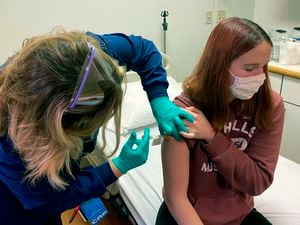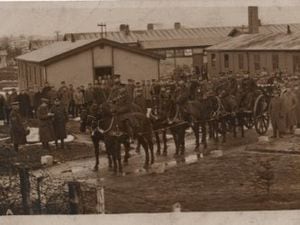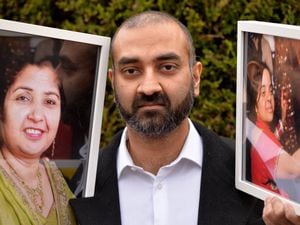Fosun’s role in vaccine that may free us all from Covid nightmare
A major breakthrough has been announced in the search for a coronavirus vaccine – with a little help from the owners of Wolves.

Pharmaceutical giant Pfizer says advanced trials show the vaccine has been found to be more than 90 per cent effective.
It raises hopes that a jab will be able to prevent Covid-19, with Pfizer boss Dr Albert Bourla declaring: “Today is a great day for science and humanity.”
It is also another important feather in the cap for Fosun, the Chinese conglomerate that owns Wolves.
Its medical arm, Fosun Pharma, is at the forefront of the project to find a vaccine after partnering with American pharmaceutical giant Pfizer and the German vaccine maker BioNTech to co-develop the mRNA vaccine.
The vaccine is among a handful currently in late-stage trials – and its announcement of a breakthrough is a major boost to hopes that coronavirus can be beaten.
The Express & Star revealed yesterday that GP surgeries, pharmacies and public buildings were being earmarked as possible centres for mass vaccinations in the West Midlands.
It is expected large-scale inoculations will not happen until early next year, but that health workers and the vulnerable may be targeted before Christmas.
Downing Street welcomed the Pfizer results as “promising” and said the UK will have procured 10 million doses by the end of the year to be given out if it is approved.
The UK has secured 40 million doses in total of the vaccine. The FTSE 100 jumped more than 5.5 per cent on the news, adding £82 billion to the value of its shares in the market’s best day since March.
The vaccine has been tested on 43,500 people in six countries and no safety concerns have been raised.
Dr Aimin Hui, vice president of Shanghai Fosun Pharmaceutical Development said he believed a vaccine will be available to publicvery soon. He said: “The evidence suggests that one or more vaccines will be available to the public in the fourth quarter this year or early next year.”
Prime Minister Boris Johnson’s official spokesman said: “The results are promising and while we are optimistic of a breakthrough, we must remember there are no guarantees.”
Pfizer and BioNTech plan to apply to the US Food and Drug Administration – the US medicines regulator – by the end of the month for emergency approval to use the vaccine.
About 12 Covid-19 vaccines around the world are currently in the final stages of testing, but Pfizer’s is the first to report any results.
Researchers working for Fosun were part of the development of the vaccine. Fosun Pharma is part of Fosun International, which owns Wolves and has interests in a wide range of activities, from private hospitals and tourism to insurance and sport.
Dr Bourla said: “The first set of results from our Phase three Covid-19 vaccine trial provides the initial evidence of our vaccine’s ability to prevent Covid-19.”
He added: “We will continue to collect further data as the trial continues to enrol, for a final analysis planned when a total of 164 confirmed Covid-19 cases have accrued. I would like to thank everyone who has contributed to make this important achievement possible.”
Ian Jones, professor of virology at the University of Reading, said the Pfizer trial data shows “really impressive protection and no reported adverse events”.
He said: “Of all the current vaccines currently in development, the BioNtech product always looked like the most bang-per-buck as it is entirely focused on the part of the virus that binds to the human cell, the receptor binding domain.”
“The questions around its use were about the ability to manufacture at scale and the possible toxicity associated with a directly injected RNA product.
“The trial data show excellent results in both of those areas, really impressive protection and no reported adverse events.”
Dr Michael Head, senior research fellow in global health, University of Southampton, added: “This cautiously sounds like an excellent result from the phase three trials, but we should remain a little cautious.
“If the final results show an effectiveness of anywhere near 90 per cent with response in elderly and ethnic minority populations, that is an excellent result for a first generation vaccine.”
Professor Azra Ghani, chair of infectious disease epidemiology at Imperial College London, said that long-term efficacy data would come over coming weeks and months, but said it was “welcome news”.
Prof Ghani said: “These new results represent the first demonstration of substantial efficacy of a vaccine candidate against Covid-19 disease, which is very welcome news.
“The efficacy estimate is based on seven days of follow-up of participants following the second dose; further data in the coming weeks and months will provide a better picture of longer-term vaccine efficacy.”
People will need two doses of the jab, meaning not enough shots have been secured for the entire UK population.
Pfizer and BioNTech expect to be able to produce up to 50 million vaccine doses globally in 2020 and up to 1.3 billion doses in 2021.
The data from the full phase three trial will be submitted for scientific peer-review publication.
The vaccine has been shown to produce both an antibody and T-cell response in the body to fight coronavirus.
BioNTech founder Prof Ugur Sahin described the results as a “milestone”.





